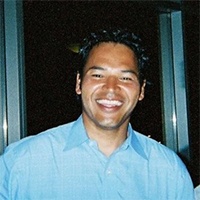Warsaw Criminal Lawyer, Minnesota
Jonathan Kim Reppe
✓ VERIFIEDCriminal, DUI-DWI, Divorce & Family Law, Real Estate, Business
Relax As We Lift Your Legal Worries Off Your Shoulders.
Mr. Reppe developed a passion for helping individuals with their legal problems while working as a public defender early in his career. He moved on to... (more)
Lance R Heisler
✓ VERIFIEDBankruptcy & Debt, Misdemeanor
Lance R Heisler is a practicing lawyer in the state of Minnesota handling bankruptcy matters.
Daryl Dean Bail
Accident & Injury, Bankruptcy, Criminal, Divorce & Family Law
Status: In Good Standing Licensed: 36 Years
David William Jacobsen
Real Estate, Trusts, Estate, Wrongful Termination, Criminal
Status: In Good Standing



